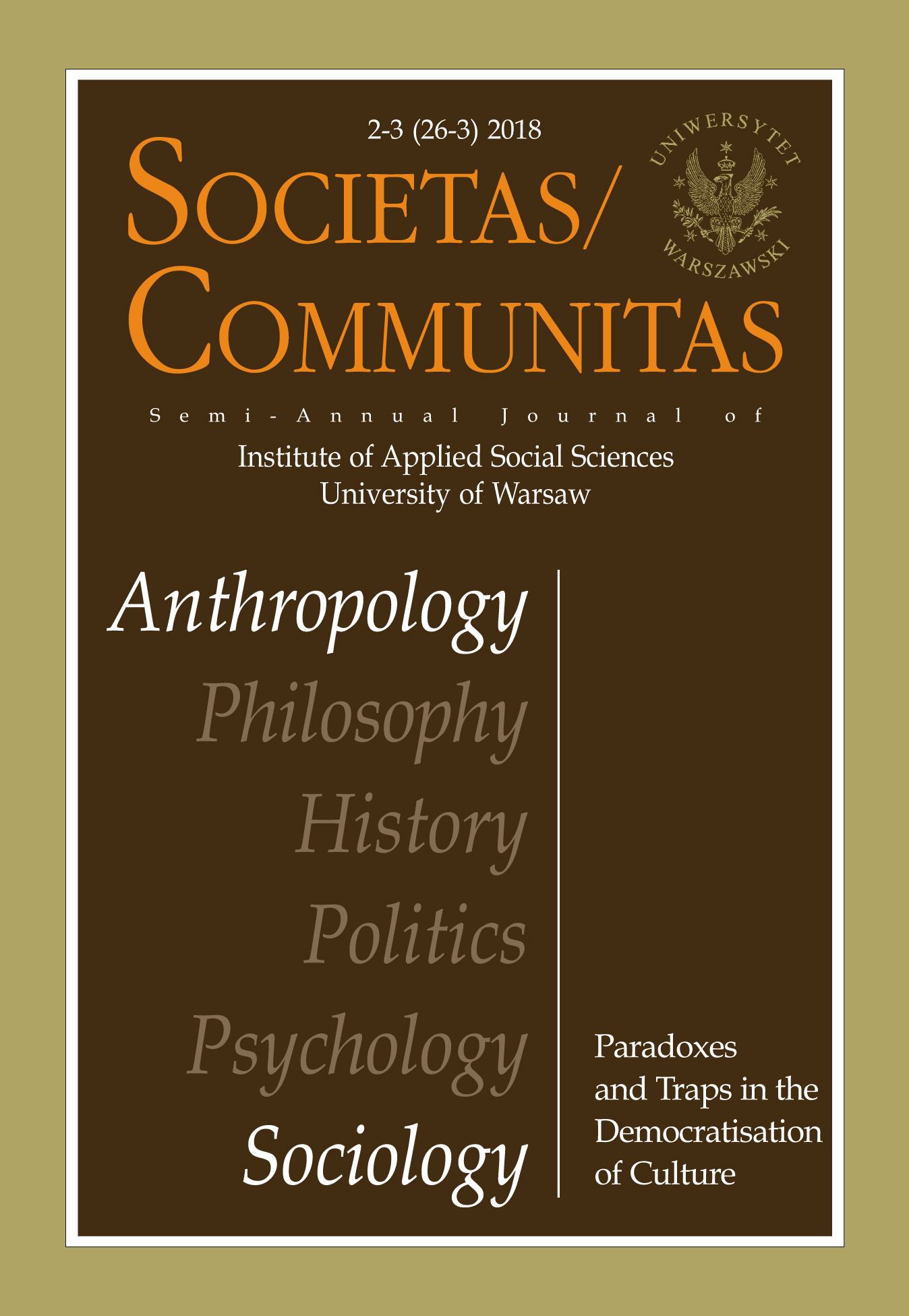Democratisation in the Culture of Capitalism and Two Principles of Managerial Discourse
Democratisation in the Culture of Capitalism and Two Principles of Managerial Discourse
Author(s): Jerzy Stachowiak Subject(s): Business Economy / Management, Social psychology and group interaction, Social Theory, Management and complex organizations, Sociology of Culture
Published by: Instytut Stosowanych Nauk Społecznych Uniwersytetu Warszawskiego
Keywords: democratisation; Karl Mannheim; managerial discourse; managerial correctness; discursive reversibility;
Summary/Abstract: The article discusses the phenomenon of the democratisation of culture in the context of the transformations within contemporary capitalism. The issue of distance reduction (Karl Mannheim) is presented against the concept of equalisation (Max Scheler). The term ‘managerial discourse’ is introduced against such a background and in reference to the historical transformations of entrepreneurial culture. Simultaneously, the article also focuses on two principles which regulate the managerial discourse, namely the principle of managerial correctness and the principle of discursive reversibility. The former allows for the division of public communication into unique content (related to social inequalities) and privileged content (related to predispositions), whereas the latter enables statements that emphasise human agency (agencification of subordinates) and statements that objectify employees (handling of objects) to coincide in the same discourse. Not only does democratisation in the culture of capitalism appear to be an area of discourse analysis, but it is also a realm of research on so-called thought styles a contact point of the sociology of knowledge (Karl Mannheim) and the sociology of thought (Ludwik Fleck).
Journal: Societas/Communitas
- Issue Year: 2018
- Issue No: 26 (3)
- Page Range: 89-118
- Page Count: 30
- Language: English

